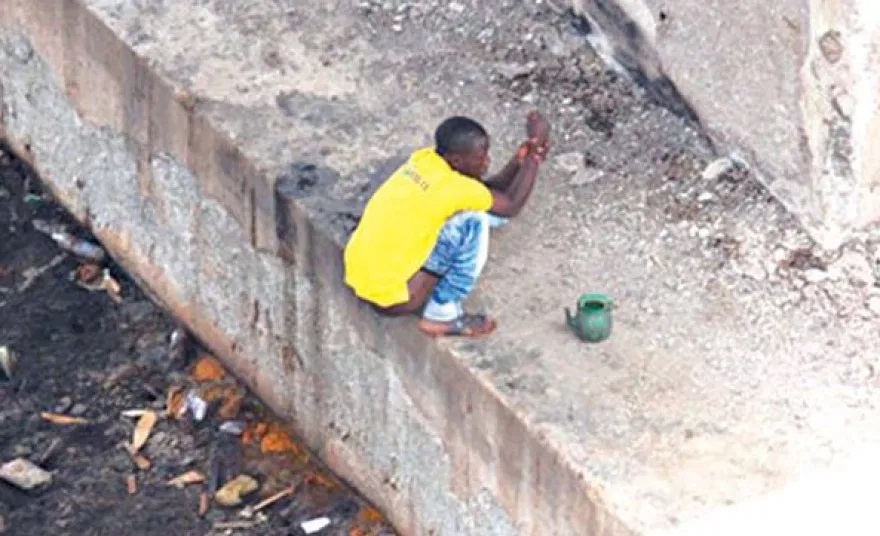“It is a great disappointment that you cannot stand in some strategic locations in Abuja to wait for a taxi or to buy something because of the bad smell that will envelope you as most places are littered with human faeces and urine,“ said Matthew Oboh, an Abuja resident.
Oboh said: “I was dropped off at Mabuchi express from Kubwa by a friend so as to board a taxi to Jabi, I could not breathe because of the stench coming from the expressway. I had to walk down just to move away but it got worse so when I turned back, I saw the way the place, which was meant for beautification of the road, was designed with human faeces and that explains the smell.’’
He said the smell was worse following the little rain that fell a day before his encounter.
He said it was a horrible experience and also noticed that the same thing abound with other places like under the bridge in most of the city centres by the expressway.
Another resident who wants to be addressed as Stanley said most of the people who live in some of the nearby slums where there is the problem of toilets are mostly the perpetrators of such act and those guys who are homeless use the express as toilets in the wee hours and maybe a few passersby who got pressed on their way.
“I was told that most of them go to those bridges in the early morning to line up and defecate because they do not have a good toilet system and prefer the express as there is little risk than using the bushes,” he said.
He said aside from the defecation, there are other places you pass that you cannot breathe fresh air because of the stench coming from their sewage.
“Abuja is not supposed to have such challenges because we have the seat of power and all the key sectors headquarters are here and many foreigners visit us and yet they will witness all these, so what kind of impression do you want them to take home?”
“It is only in Nigeria that you will see people defecating in front of the ministry of environment or agencies that are supposed to be responsible for enforcing environmental sanitation and nothing will happen.
“I want to say the FCT administration needs to do something about that because the smell is so terrible and what is worse is the fact that the acts are mostly carried out in strategic places in the heart of the city. When rain comes fully, these faeces will transport to nearby water bodies, which are likely to be used by humans for either industrial or home use,” he said.
For Shedrack Thomas, the situation is really bad, especially when small rain touches the ground.
“I remember I was in a car on one occasion and as we take a drive through a bridge and take a turn to connect to the express, there was the small of poo everywhere that the driver had to ask what was smelling,” he said.
He said it is so unfortunate that people no longer use the bushes anymore, maybe for fear of reptiles or being kidnapped but now prefer to use any spot near the expressways.
“This is not only defacing the city but polluting the air and in most of these places where such acts are carried out, you will find out that not too far from there, either one activity like taxis loading or some people selling something to eat will be found close there and this is dangerous to our health as well,” he said.
He said the authority should put a mechanism in place to arrest the situation, adding, “It is high time Abuja had public toilets that are not being paid for. The ones you see in markets and parks are being paid for and that is why many will not go there to use it and they prefer to do it in the open.”
Meanwhile, experts have attributed open defecation as a behavioural issue because people are used to open defecation for ages and when they see any space, they just go in and defecate.
According to the World Bank, the result of a study revealed that open defecation has serious consequences and implications on the lives and health of the people as it leads to the spread of water borne diseases; increases the risk of flooding during rains; deteriorates the quality of drinking water making it unfit for drinking purposes.
It said the contamination of water can lead to the spread of diseases such as cholera, diarrhea, and dysentery. Also that people, particularly women and girls who practise open defecation, experience feelings of shame, loss of personal dignity, and increased safety risks.

 Join Daily Trust WhatsApp Community For Quick Access To News and Happenings Around You.
Join Daily Trust WhatsApp Community For Quick Access To News and Happenings Around You.


